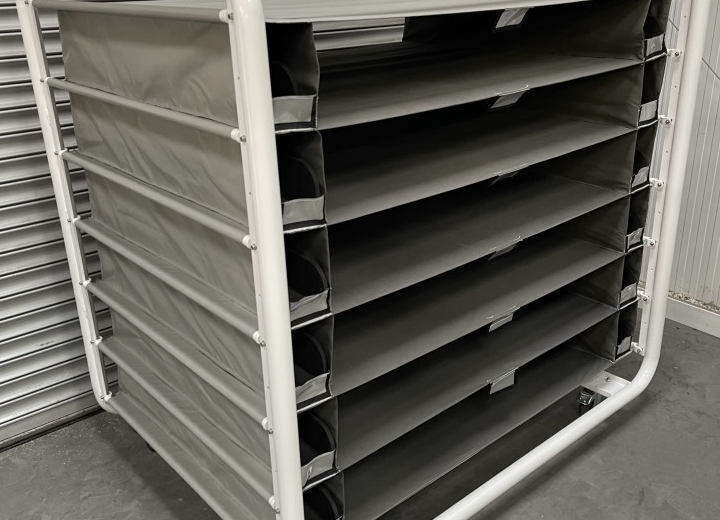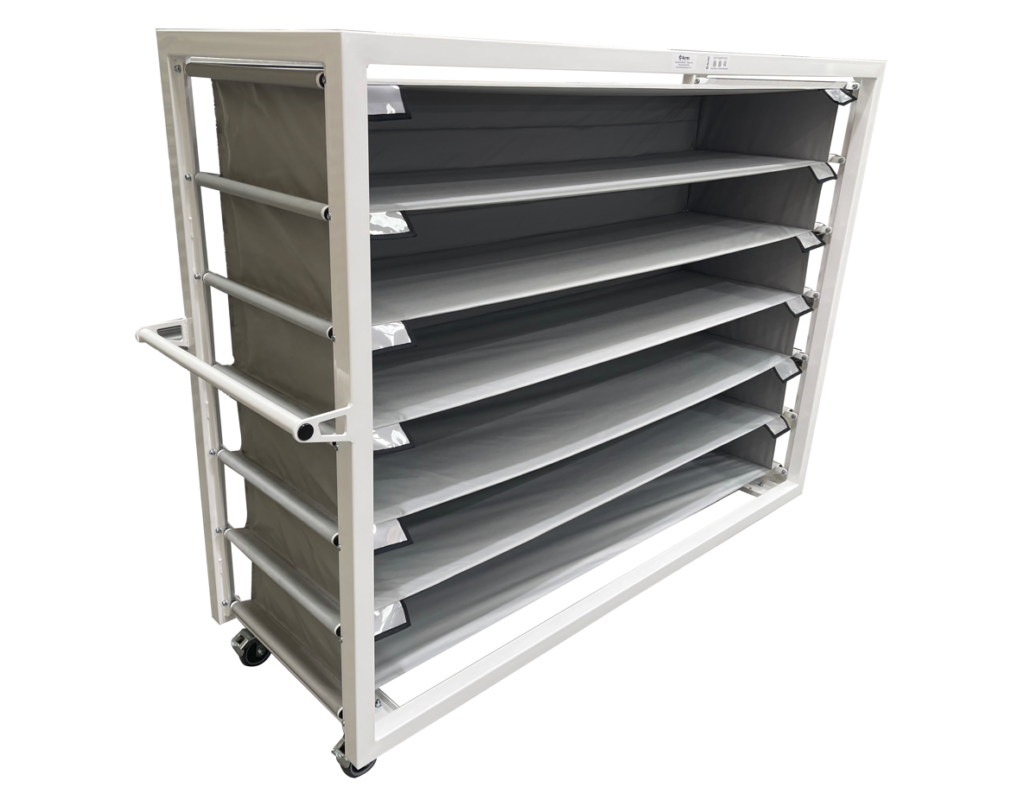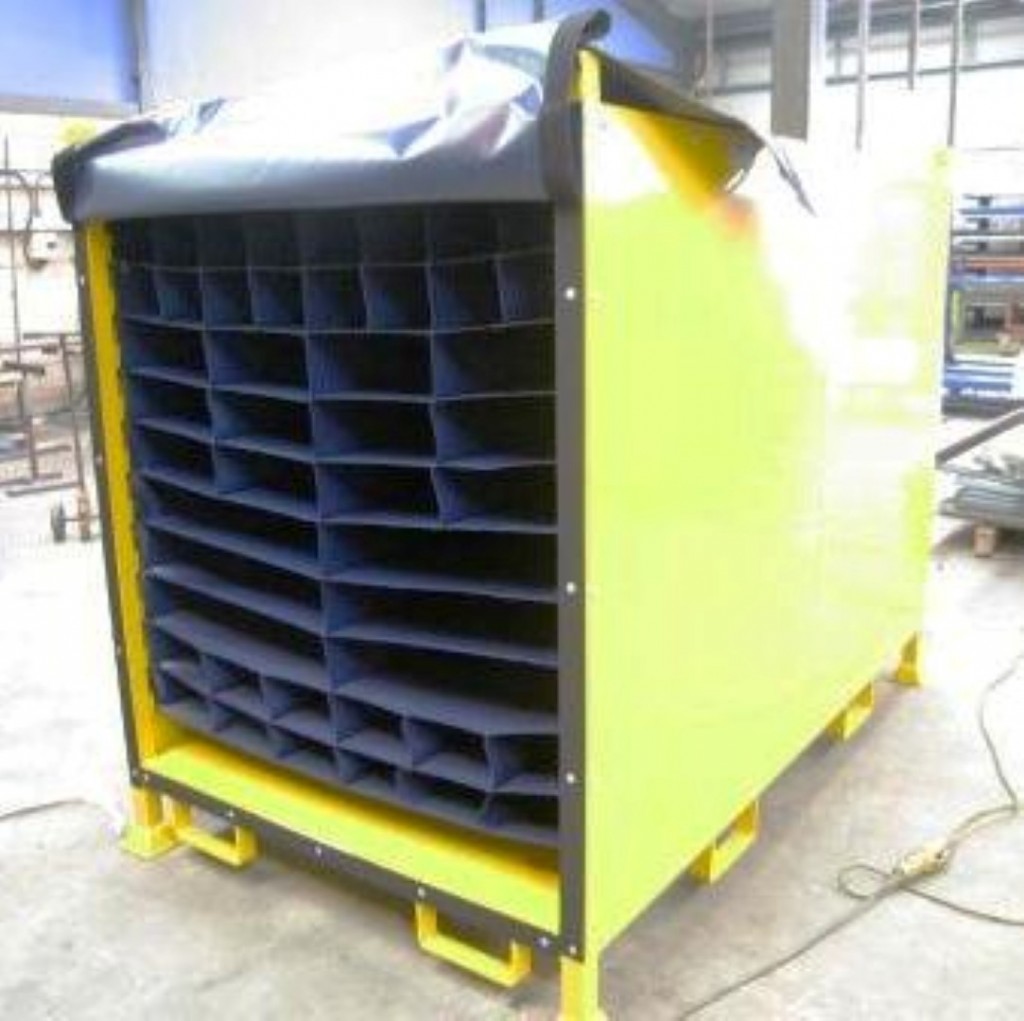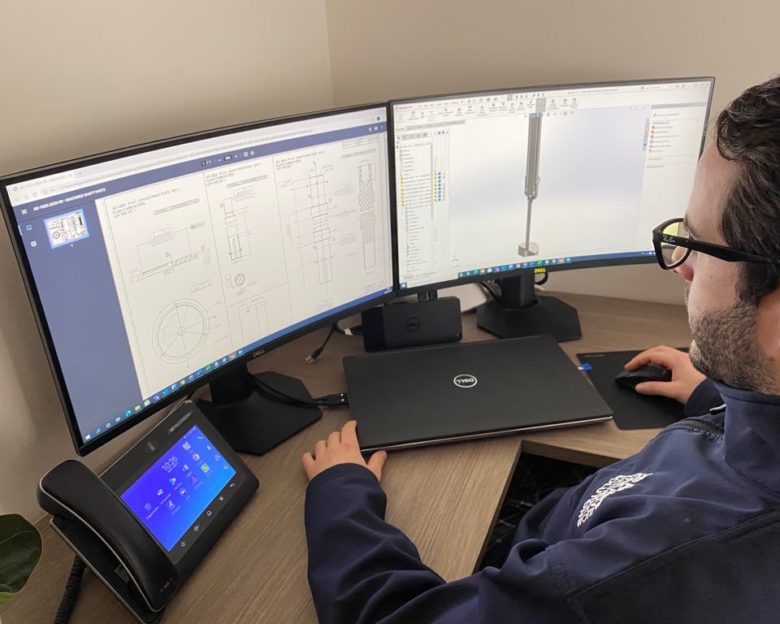What is a dunnage stillage?
Dunnage stillages are called “dunnage stillages” due to their specific function and construction in the context of logistics and storage. The term combines two key concepts: “dunnage” and “stillage.”
- Dunnage: Traditionally, dunnage refers to materials used to protect and support cargo during transportation. This can include items like wood, foam, or other padding materials that prevent movement, absorb shock, and protect goods from damage. The term “dunnage” itself has maritime origins, where it was used to describe loose wood or other materials placed in the holds of ships to protect cargo from damage due to shifting or moisture.
- Stillage: A stillage is a type of pallet or framework used for storing and transporting goods. It typically has a rigid structure, often made of metal, designed to hold items securely in place. Stillages can be stackable and are frequently used in warehouses and manufacturing environments to store parts, materials, or finished products.
When combined, “dunnage stillage” refers to a specific type of stillage that incorporates dunnage materials or is designed to securely hold items in place during storage and transport, offering protection and stability. These stillages are particularly useful in industries where the safe and efficient handling of goods is critical, such as automotive, aerospace, and heavy manufacturing.
What should you consider when designing or specifying a dunnage stillage?
When designing dunnage stillage solutions, it is crucial to ensure that the fabric inserts used are both robust and properly tensioned to provide adequate protection and support. Here are some key considerations and steps to achieve this:
1. Fabric Selection
- Material Quality: Choose high-quality, thick fabrics that can withstand the rigors of transportation and storage. Common materials include heavy-duty nylon, polyester, or other industrial-grade textiles.
- Durability: Ensure the fabric is resistant to tearing, abrasion, and environmental factors such as moisture and UV exposure.
2. Tensioning Mechanism
- Design for Tensioning: Incorporate mechanisms in the design that allow for easy and secure tensioning of the fabric inserts. This can include adjustable straps, buckles, or tension rods.
- Uniform Tension: Ensure that the tensioning mechanism distributes force evenly across the fabric to avoid stress points that could lead to premature wear or failure.
3. Assembly Process
- Pre-Tensioned Inserts: During the assembly process, pre-tension the fabric inserts to the required level to ensure they remain taut and do not sag over time.
- Secure Fastening: Use secure fastening methods such as reinforced stitching, rivets, or industrial-grade adhesives to attach the fabric inserts to the frame.
4. Testing and Quality Control
- Load Testing: Conduct load testing to ensure the fabric inserts can handle the weight and stress of the items they will support.
- Regular Inspections: Implement a routine inspection process to check for any signs of wear, damage, or loss of tension in the fabric inserts.
5. Customisation and Adaptability
- Custom Fit: Design the fabric inserts to fit the specific shape and size of the items being transported or stored to maximise protection and efficiency.
- Adaptability: Consider modular designs that allow for easy replacement or adjustment of fabric inserts as needed.
Frame Design:
- Frame: Sturdy metal or composite frame that provides the structural support for the stillage.
- Fabric Inserts: Thick, durable fabric inserts attached to the frame.
- Tensioning Straps/Buckles: Adjustable straps or buckles integrated into the design for easy tension adjustment.
- Reinforced Edges: Edges of the fabric inserts are reinforced with additional stitching or protective material to prevent fraying.
Assembly Process:
- Attach fabric inserts to the frame using reinforced stitching or rivets.
- Adjust tensioning straps/buckles to ensure the fabric is taut.
- Inspect the assembly for any weak points or areas that may require additional reinforcement.
By adhering to these guidelines, you can ensure that your dunnage stillage solutions are robust, reliable, and capable of providing the necessary protection for your goods during transportation and storage.
Acres have a range of standard products but also support clients with custom machinery and medium-high volume products such as trolleys, stillages etc.
We have manufactured lots of different tables / workstations / workbenches for various industries.
We also manufacture access platforms, jigs and fixtures and many other types of production support solutions / products.
Talk to us today about your requirements: [email protected] / 01332695240 / Contact Us Form
Click on the icon to check out our social media! Please follow, like and share!
Want to know more about Acres Engineering?
We are based in the UK from our Headquarters in Derbyshire, England and have a European office in Malaga, Spain within the EU.
Find out more about where we have been and what we have been up to by checking out our latest blog posts.
Take a look at how we support of the Armed Forces, STEM/Schools and Charities.
As a world leader in our field, we offer a range of information guides sharing best practice with our clients.
We make it easy to engage with us, we are approved on: EcoVadis (external) / JOSCAR (external) / AVETTA (external) / COUPA (external) / SAP ARIBA (external) / DEEPSTREAM (external) ….you can download our BSI / Insurance certificates here.
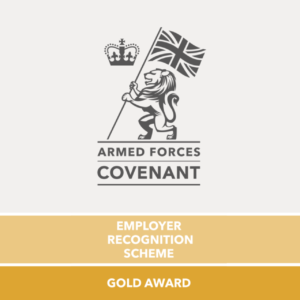
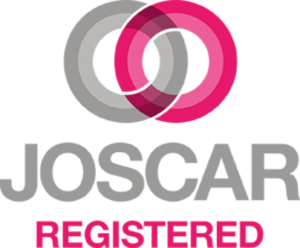


![]()
![]()
![]()
